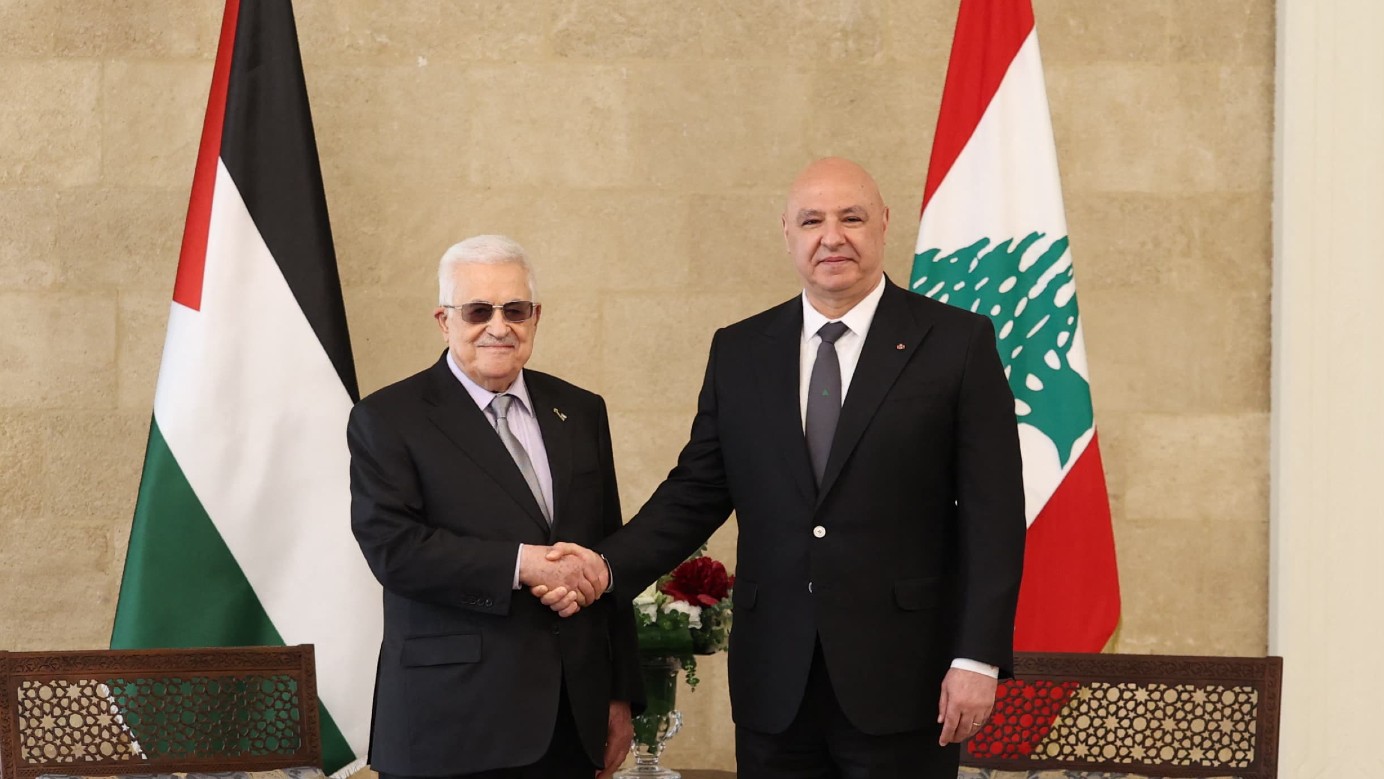Mahmoud Abbas agrees on roadmap to disarm Palestinian factions in Lebanon

Palestinian Authority President Mahmoud Abbas has agreed on a framework to disarm Palestinian factions within Lebanon during his three-day trip to the country.
After meeting with Lebanese President Joseph Aoun on Wednesday, a joint statement released on the Lebanese presidency's X account said there was a commitment by "both sides to the principle that all weapons in the country must controlled by state authorities".
"They declare their belief that the era of weapons outside the authority of the Lebanese state is over," the statement read.
Earlier this month, Palestinian and Lebanese sources told Middle East Eye that Abbas' visit was intimately tied to disarming Palestinian factions in Lebanon.
On Friday, unnamed sources told the Lebanese newspaper Al-Akhbar that during the trip, Abbas had assured Aoun that "the time for weapons is over," with Abbas reportedly also saying that he supports "any mechanism decided upon by the Lebanese state to hand them over".
New MEE newsletter: Jerusalem Dispatch
Sign up to get the latest insights and analysis on Israel-Palestine, alongside Turkey Unpacked and other MEE newsletters
The Lebanese newspaper L'Orient Le Jour reported that the disarmament process would begin in mid-June.
It said the first phase would begin in the Beirut refugee camps of Bourj al-Barajneh, Shatila, and Mar Elias. Then, in early July, the process would start in the Bekaa Valley and in north.
It said the third phase, which wasn't linked to a timeline, would take place in other refugee camps in the south.
The move to disarm the factions is seen as part of a broader effort to reshape Lebanon's political landscape amid Hezbollah’s relative military decline following Israeli strikes that decapitated much of its leadership in 2024.
Since signing a ceasefire agreement with Israel, Lebanon has faced growing pressure from the US to disarm armed groups and on Sunday, Aoun told the Egyptian channel ON TV that "the monopoly of weapons should be in the hands of the state".
The army, he added, had dismantled six Palestinian military training camps - three in the Bekaa, one south of Beirut and two in the north - and seized weapons.
Palestinian resistance groups remain active in Lebanon’s refugee camps due to historic displacement and ongoing political marginalisation.
Following the creation of Israel in 1948 and the subsequent Arab-Israeli wars, around 750,000 Palestinians were expelled from their homes, with many seeking refuge in Lebanon.
Over time, groups such as Fatah, and later Hamas and the Popular Front for the Liberation of Palestine, have established a presence in the camps to continue their resistance against Israel.
Palestinian refugees in Lebanon are still denied basic civil rights, including access to many professions and the right to own property. With limited opportunities, some join armed factions for protection, a livelihood, or political representation.
middleeasteye.net